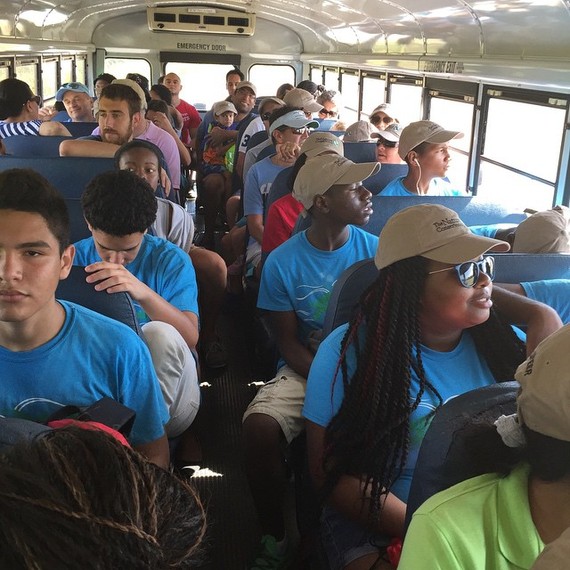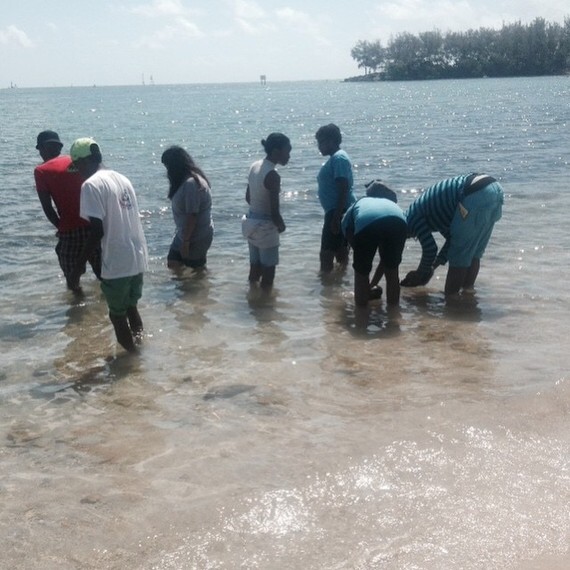The Virginia Key Beach Park was the only beach open to African Americans in the Miami area during the segregation period. By 1982, the park was closed due to high maintenance costs. Finally in 2008, the Historic Virginia Key Beach Park re-opened to the public after 26 years, largely due to the efforts and fundraising campaign led by the Virginia Key Beach Trust, an organization that formed to save the park from commercial development in the late 90's. For the past decade, the Trust, and several environmental groups have been working to restore the park.
In fall 2014, the Patricia and Phillip Frost Science Museum's volunteer based restoration project formed a partnership with the Museum of Natural History in Kingston, Jamaica, called JaMuve. The program focuses on restoring a 17-acre site at Virginia Key Beach in Miami and an urban site at Greater Portmore in Kingston, Jamaica. Three scientists and thirty students from each museum were selected from museum youth programs to participate in the program. The groups communicate daily via the social media group texting app, Whatsapp, and highlights are published on Facebook, Twitter, Instagram and a blog on the MUVE website. Students work with museum scientists to clean and log trash on the sites, obtain water quality data in the Virginia Key Beach wetlands, assist in mapping and outlining restoration, and help stabilize the habitats through invasive species removal and tree planting.
This past Saturday, April 11th, JaMuve collaborated with several environmental organizations at the "Connect with Nature Miami" event held at the historic Virginia Key Beach Park. The motto of the event according to MUVE Restoration and Social Action Coordinator Chelle King was "get your hands dirty." She states, "the purpose of the event was to give people a sense of the project and the restoration work we do." Some of the students from Jamaica traveled to Miami to attend the event.
The event consisted of exhibitors at the park while an hourly shuttle transports volunteers to the restoration site. At the site volunteers participated in events such as a shore walk led by the Tropical Audubon Society and a BioBlitz in which volunteers used the INaturalist App to help record each species found at the site.
Executive Director of the Virginia Key Beach Trust, Guy Forchion, states, "this event brought together a lot of different volunteer groups that don't normally collaborate. For many of them, it was there first time at the park. It provides great exposure to bring the community together in restoring this natural area just 2 miles from downtown Miami. The event brought families and a variety of different groups and people together for a great cause."
The Nature Conservancy's Urban Conservation Director Greg Guannel emphasizes the importance of the JaMuve program and its involvement with the "Connect with Nature Miami" event; "we are building environmental leaders for tomorrow and working together with Caribbean nations that share similar conservation problems as us, such as water quality, preserving mangroves, coral reefs and other natural areas that serve as buffers for urban areas from hurricanes and tropical storms or as tourist destinations. The students from Jamaica will take the message we teach them back home to the Caribbean. The exchange program is a powerful, unifying force bringing awareness to conservation problems and highlighting tangible solutions. The participation of the students from Jamaica at the event helped engage the local community and taught them why it is so important for people to get involved with nature."


